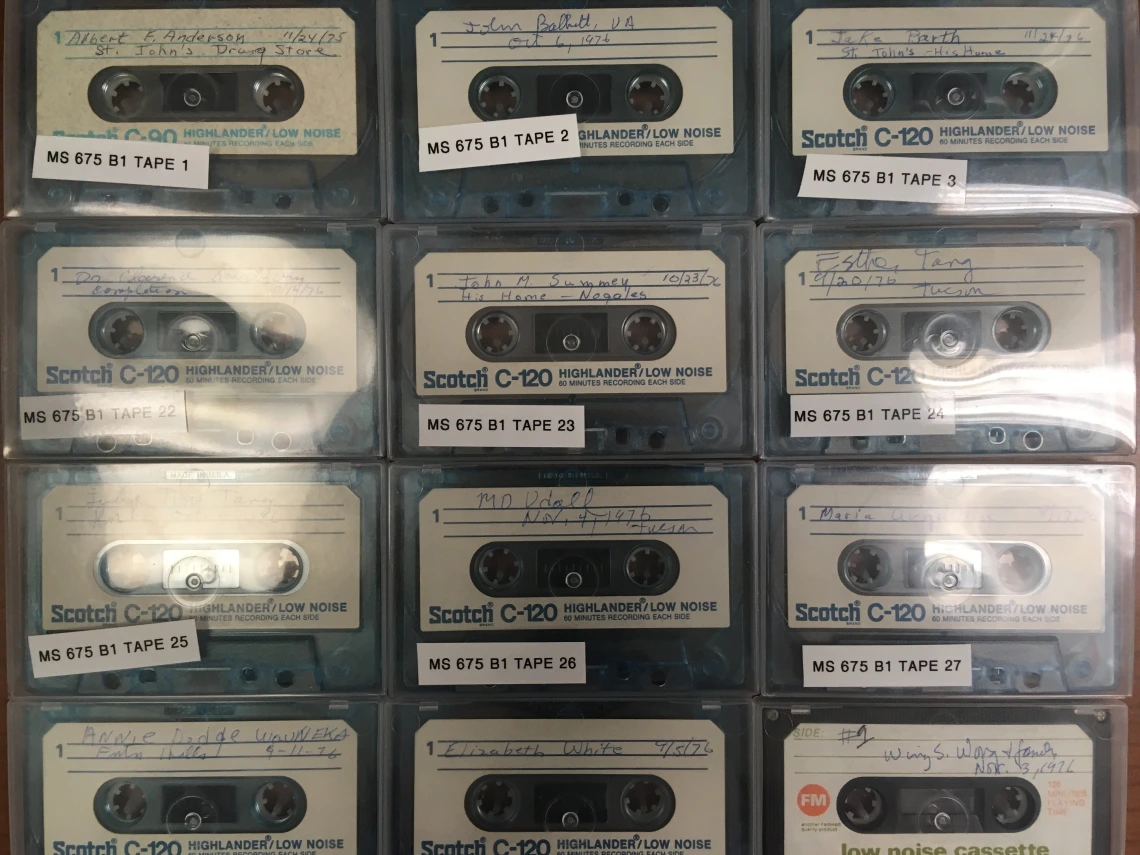Abraham Chanin Oral History audiocassettes

Abraham Chanin Oral History audiocassettes.
Collection dates: 1974 to 1977
This collection contains interviews created by Abraham Chanin dating 1974-1977 with prominent Arizona settlers, politicians, University of Arizona faculty, and members of Native American communities on 30 audiocassettes. Notable figures include Charles Loloma who discusses the Hopi community and Enos Francisco who details life on the Papagueria. Also of note is an interview with Hiro Nomura, William Kajikawa and Margaret Kajikawa discussing thier expereinces in a Japanese-American internment camp and Hayzel Burton Daniels discussing African American pioneers. Other interviewees include politicians Raul Castro and Morris Udall and University of Arizona faculty Emil Haury, and Roy Drachman. Several of the interviews were used as source material for This Land These Voices authored by Abe Chanin with Mildred Chanin, published in 1977.
Abraham (Abe) Chanin was an author, historian, former publisher of the Arizona Jewish Post, sports editor at the Arizona Daily Star, and professor at the University of Arizona School of Journalism from 1976-1988. From 1988 to 1994, Chanin was director of the Bloom Southwest Jewish Archive at the University of Arizona. He died February 1, 2014 in Albuquerque, NM at the age of 92. He authored several books documenting the history of Arizona and the Southwest. In 1977, the book This Land, These Voices: A Different View of Arizona History in the Words of those who lived it authored by Abe Chanin and his wife Mildred Chanin was published by Northland Press. The book contains interviews with over 30 individuals and describes the social history and development of Arizona and the Southwest.
A collection guide explains what's in a collection. New to using our collections? Learn how to use a collection guide.
Collection guideThe collection has materials you can access online.
Access this collection
Visit us in person to access materials from this collection. Our materials are one-of-a-kind and require special care, so they can’t be checked out or taken home.
How to cite
Learn how to cite and use materials from Special Collections in your research.
